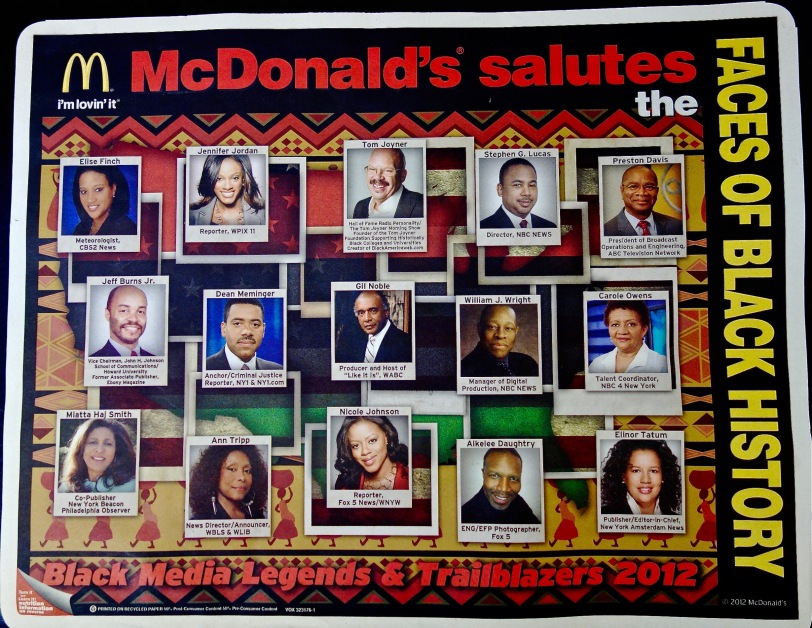As a teen growing up during the height of the 60’s civil rights movement, I never questioned the need for Black History Month. The struggle was evident every day. History was being made as Martin Luther King marched, Malcolm X harangued, by Thurgood Marshall who adjudicated, and Percy Sutton who held sway over New York City politics.
Black History Month looked at larger than life individuals, people who rose to stratospheric heights at time when this boy, growing up in the Farragut/Fort Greene projects of Brooklyn, was trying to find his place in a world that seemed to ignore the accomplishments of the average Black man.
Dr. Carter Woodson knew this when in 1926, he began promoting “Negro History Week” during the second week of February to celebrate the birthdays of Abraham Lincoln and Frederick Douglass. The Harvard educated creator of the Association for the Study of Negro Life and History, the Journal of Negro History, the Associated Publishers, and Negro History Bulletin knew how important it was for African Americans to know their contributions if the generation following them were to flourish.
The influences of the 1960’s civil rights movement led me to the field of Journalism and the media. Back then, people on national platforms telling the stories of Black people in America were for the most part, white. I wanted to be one to tell our stories and to promote the fact that people of color deserved more consideration to be on camera other than being eyewitnesses to crimes or the subject of perp walks. To that end, when it came to my role in broadcast journalism, I have been unapologetically Black.
My Black History Month orientation made me appreciate people in my immediate circle, such my Boy Scoutmaster Mr. Taylor at The Church of the Open Door, who taught me my first lessons in leadership. Or Billy Borden, The Riversiders drum corps leader who introduced me to lessons in socialized competition, or the fathers of families in my 14 story apartment building who unknowingly carried the burden of being role models to those of us whose fathers walked away, and did not take the responsibility of being the heads of their own families.
Yes, Black History Month is more than PSAs on TV, or full page commercial notices in newspapers. It is something to be filtered through the fabric of culture, heightening the awareness of one generation to appreciate the everyday accomplishments of the next. It is a call to role models, to image-makers, and leaders in every walk of life. And for the fortunate, recognition comes from the most unexpected places.

The McDonald’s Salute to the faces of Black history included place mats that were put on every tray at McDonald’s restaurants during Black History Month in 2012.
On February 1, 2012, after 45 years in the News business, the McDonald’s Corporation, through the auspices of A. Curtis Farrow’s Irving Street Agency, honored me and 14 other colleagues for their iconoclastic work in media. It was such a great gesture to be honored in the same breath as legendary broadcasters Tom Joyner, Gil Noble ((WABC), and Ann Tripp (WBLS/WLIB). My NBC colleagues Stephen Lucas, and Carol Owens were also recognized that day, along with some wonderful friends, Nicole Johnson (WNYW), Elise Finch (WCBS), Jennifer Jordan (WPIX) and NY1’s Dean Meminger.
Elinor Tatum, the publisher and editor-in-chief of the Amsterdam News, was also on the list of honorees that day, as well as another print trailblazer Miatta Haj Smith of the Philadelphia Observer/New York Beacon.
It was also great to be on the same roster as shot caller Preston Davis, President of Broadcast Operations at ABC Television Stations, news photographer Alkelee Daughtry and Howard University educator Jeff Burns Jr.
That moment, in a ceremony witnessed by my family and my boss Alex Wallace Senior Vice President of NBC News, brought my thoughts and impressions of Black History full circle. African Americans, being top on-air professionals, powerful educators, and committed journalists, make history every day as they tell our stories, encourage our youths, and preserve our dignity as a people.
Having been in television news since 1971, I never thought of myself being a trailblazer, and especially not a legend. But having the honor of working in concert with African American news professionals at time when we were few in numbers, I take pride in the fact that my presence and influence helps to keep the industry honest about how Black people are portrayed in the news, increasing the diversity of voices and faces, and to help promote other people of color to the ranks of journalists who tell our stories for the next generation.
An inspiring story of truth. There is so much more work to be done. I enjoy uncovering truth about black history. There are so many more secrets to uncover. Thank God for the pioneers such as yourself Will J. Wright, and all of the others before you for their contributions made to Black society. Thank you for keeping us all above water.
LikeLiked by 1 person
Thank you for your kind and thoughtful comments! It is my hope that the history you create as you spread such love and understanding lead to growth and enablement for your family!
LikeLike